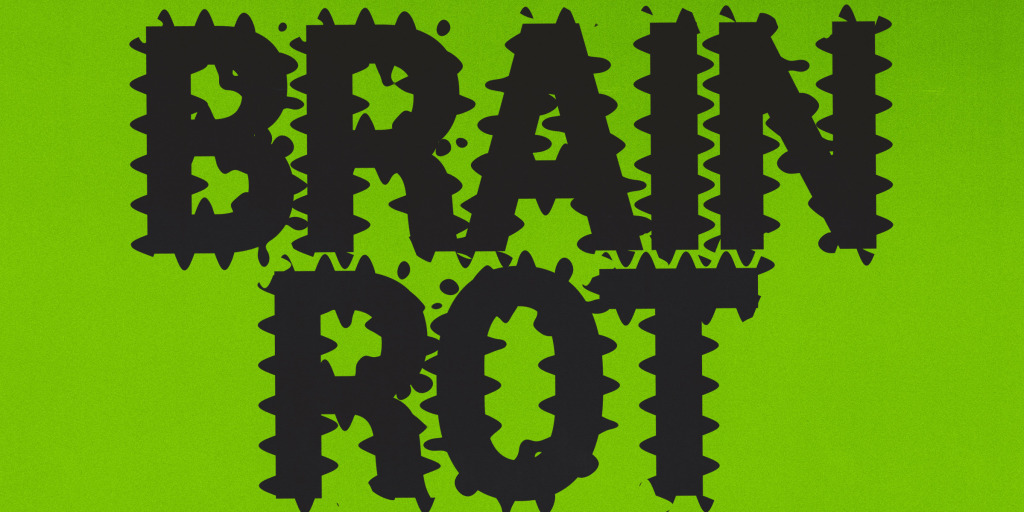Brain Rot
UAE’s mental health experts warn against excessive use of low-quality online content. Dubai: Have you heard of the word ‘brain rot’? Well, it’s the Oxford Word of the Year for 2024.
According to the Oxford University Press, its language experts created a shortlist of six words to reflect the moods and conversations that have helped shape the past year. “After two weeks of public voting and widespread conversation, our experts came together to consider the public’s input, voting results, and our language data, before declaring ‘brain rot’ as the definitive Word of the Year for 2024,” it has declared.
But just what is brain rot?
Brain rot is defined as “the supposed deterioration of a person’s mental or intellectual state, especially viewed as the result of overconsumption of material (now particularly online content) considered to be trivial or unchallenging. It is also something characterized as likely to lead to such deterioration. It’s a term used to capture concerns about the impact of consuming excessive amounts of low-quality online content, especially on social media. And its usage frequency increased by 230 percent between 2023 and 2024.
How prevalent is brain rot?
Regarding the usage of the term apart, Gulf News reached out to mental health specialists to find out the actual prevalence of the phenomenon and how the rot comes about.
Their response could well serve as a warning for those who consume technology way more than they should.
According to Dr Ajay Kumar, Specialist Psychiatrist with the Dubai-based Prime Healthcare Group, “brain rot is caused by excessive technology use. That might mean binge-watching videos on YouTube, scrolling social media, or switching back and forth among various browser tabs. On top of that, you might be simultaneously surfing the Internet, texting, and checking your email. The result: You’re overstimulating your brain. And when you’re digitally inundating yourself with too much information, you’re at risk of brain rot.”

Other factors contributing to brain rot include insufficient physical activity, sleep deprivation, and poor nutrition. “Brain rot is the decline of mental abilities that results from consuming too much of low-quality online content. Social media and endless scrolling leave little room for better brain health. It affects both children and adults.”
Nathalie El Asmar, Psychologist at the German Neuroscience Centre in Dubai, says brain rot is a progressive cognitive and behavioral decline caused by brain cell deterioration. “This condition has become more prevalent, particularly among younger populations. Contributing factors include excessive screen time, information overload, social media addiction, exposure to negative content, and reduced real-life interactions. Continuous social media scrolling can lead to cognitive overload, difficulty concentrating, mental fatigue, and heightened stress and anxiety. These factors collectively result in neuronal damage, inflammation, and neurotransmitter imbalances, ultimately deteriorating brain function.”

When the brain is not adequately challenged through intellectual engagement, problem-solving, or exposure to new experiences, neuroplasticity can decrease, meaning that the brain’s ability to reorganize itself by forming new neural connections throughout life is affected. The constant bombardment of information and notifications can also lead to mental detachment, making it harder for individuals to connect with the real world or engage in meaningful activities. Over time, this detachment fosters passivity, reducing the likelihood of engaging with one’s environment and increasing reliance on external stimuli, which contributes to the feeling of brain rot,” she adds.
What are the signs of brain rot?
Dr Kumar explains how brain rot reflects the slow decline in mental abilities, often linked to excessive screen use, lack of stimulation, or unhealthy lifestyle choices. “Mindless scrolling or exposure to shallow information can degrade cognitive health and contribute to mental fatigue.
In children, brain rot often manifests as reduced attention spans, difficulty focusing on tasks, and poor academic performance. Adults, on the other hand, may notice forgetfulness, low motivation irritability, and an over-dependence on devices for memory and entertainment,” he says.
He says brain rot could also describe the symptoms of emotional distress such as anxiety or depression. Psychological factors include social comparison, loneliness, isolation, and burn-out.”

How does brain rot occur?
High levels of internet usage and heavy media multitasking are associated with decreased grey matter in prefrontal regions, explains Dr Kumar.
“Research has found evidence that the Internet is shrinking our grey matter, shortening attention span, weakening memory, and distorting our cognitive processes. Of course, it’s fun to kick back and watch funny videos or scroll through memes, but if that’s all you are doing, your brain isn’t getting the workout it needs. Finally, it becomes tough to motivate yourself to tackle something more challenging,” he notes.
According to him, social media platforms can be addictive. Eventually, it can be difficult to concentrate on any one thing more than a few times.
“Scrolling through social media platforms spikes the neurochemical dopamine, which produces feelings of satisfaction and pleasure. The more you do it, the more you want to do it. Your brain associates scrolling with a feeling of gratification, even when you’re aware of its negative consequences. In this way, scrolling can become a behavioral addiction,” he warns.

